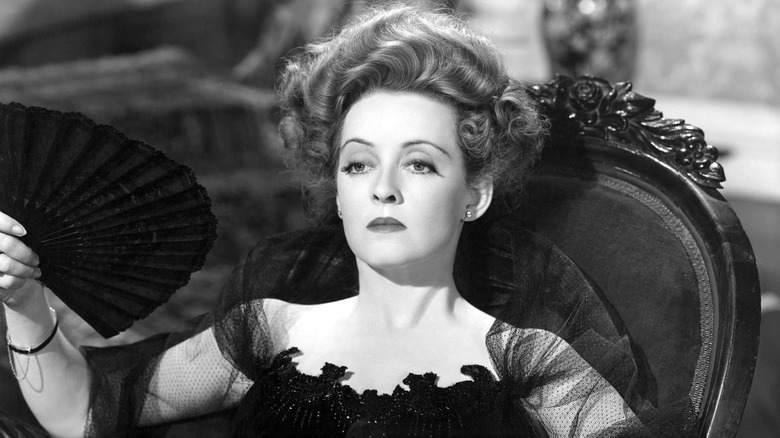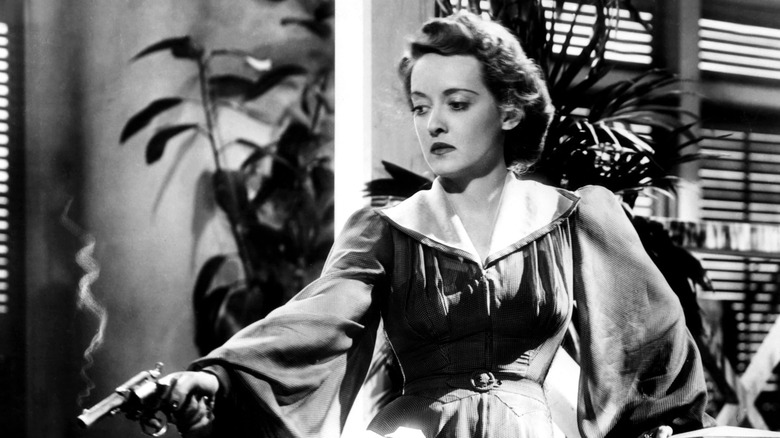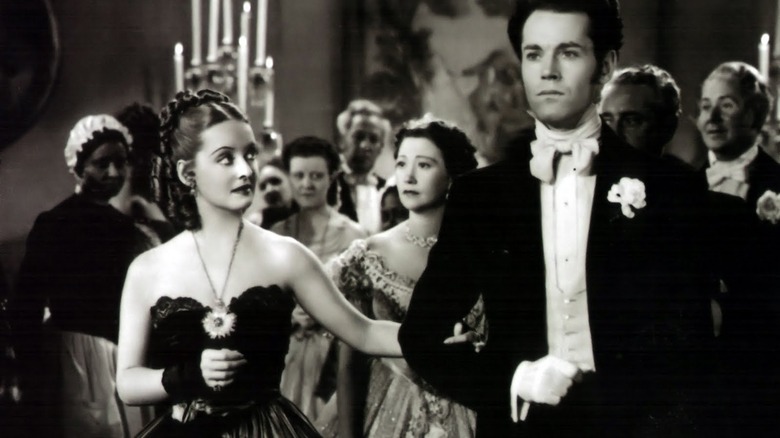Bette Davis Begged William Wyler To Come Out Of Retirement For One Last Film
Celebrated director William Wyler directed 19 feature films in 1927 alone. To put that into perspective, Stanley Kubrick directed 13 in his whole career.
Wyler is one of the more towering figures in American cinema, holding the record for the greatest number of Oscar nominations for Best Director at 12, and has won three times for "Mrs. Miniver," for "The Best Years of Our Lives," and for "Ben-Hur." Additionally, his films have attracted more Oscar attention than any other filmmaker in history; 13 of them have been nominated for Best Picture, and he directed 14 Oscar-winning performances. If you are playing Trivial Pursuit and the question is about records at the Academy Awards, William Wyler is likely your best guess.
As one of the tentpoles of Hollywood's Golden Age, naturally, Wyler was afforded access to the best actors and actresses, and seemingly had his run of whatever projects he wanted. Throughout the 1920s, Wyler paid his dues with hastily made Westerns and genre flicks before establishing himself as a legit hit-maker with the 1936 film "Dodsworth," a "titan of industry" drama that earned him his first Best Picture nomination. By today's standards, "Dodsworth" is a mite mawkish in its unabashed favor of American industrialists.
Wyler directed some of the best Bette Davis movies, beginning with the 1938 drama "Jezebel," a film very similar to "Gone with the Wind" from the following year. According to Turner Classic Movies, "Jezebel" was a "make good" offer to Davis after she lost the "Gone with the Wind" role of Scarlett O'Hara to Vivien Leigh. It was essentially a knockoff that beat its more famous descendant to the release date punch.
Davis made two additional films with Wyler and later claimed she begged him to come out of retirement for one last ride.
What film did you have in mind?
Speaking to Johnny Carson on a 1982 episode of "The Tonight Show," Davis discussed how she loves to work, but is no longer eager to get out of bed early in the morning. That lack of enthusiasm was something she shared with Wyler, a man who seemingly needed convincing to get up early in his late career. "I begged William Wyler to make another film with me," she said. "Oh, for so many years after he retired. And he said, 'I've had every morning of my life getting up at six o'clock, I will never do it again.'"
There seem to be no significant slumps or gaps in Wyler's résumé, so Davis seems to be alluding to a film that wasn't made. Davis' three films with Wyler came out in 1938, 1940 ("The Letter"), and 1941 ("The Little Foxes"). When Wyler retired in 1970, he was 68 and Davis was 62. She offers no description of the unmade film she had in mind, but did go on to discuss the way time changed her process.
"It doesn't bother you when you're working very hard to accomplish a goal, but it isn't the same thrill. I have to admit that. But I hope, still, that it's good. I haven't just sort of sat back and said, 'Well, people have great respect for you, and it doesn't really much matter what you do.' That would never be for me."
Neither Davis nor Wyler, it seems, cared to rest on their laurels.
40-take Wyler
In Axel Madsen's 2015 book "William Wyler: The Authorized Biography," the director's notorious perfectionism was described in detail. In some circles, Wyler was known as "40-Take Wyler," as that's how many times he insisted on shooting certain scenes. Henry Fonda recalled a time during "Jezebel" when Wyler would cut the scene, and simply yell "Again!" without offering any additional direction other than "It stinks!" On the set of "Ben-Hur," Wyler's direction for Charlton Heston was merely, "Be better." Working with Bette Davis, incidentally, reportedly wasn't always easy either.
Wyler's output slowed as he aged, going from making 19 films in a single year to making one film every few years. The largest gap in his career was from 1961 to 1965, in between his films "The Children's Hour" and "The Collector." Wyler's last film was "The Liberation of L.B. Jones" in 1970, and he passed away in 1981 at the age of 79. Davis continued to work until her death in 1989, and seems to have had something in mind for her and Wyler to reunite. Again, she doesn't say what sort of film the reunion would have elicited, but it might have been a delight to see two old-world Hollywood powerhouses together again. At the very least, she and Wyler would have enjoyed some nostalgia.
Davis also slowed her roll after 1970, making the occasional thriller as her energy and health allowed, appearing in films like "Burnt Offerings" and "Return from Witch Mountain." She also appeared in the 1978 version of "Death on the Nile." Her final film, Larry Cohen's "Wicked Stepmother," was a surreal horror comedy. Davis quit in the middle production — she thought the movie sucked — and was, in some scenes, replaced with a smoking housecat.
There's no doubt Wyler would have provided a more pleasant experience.


